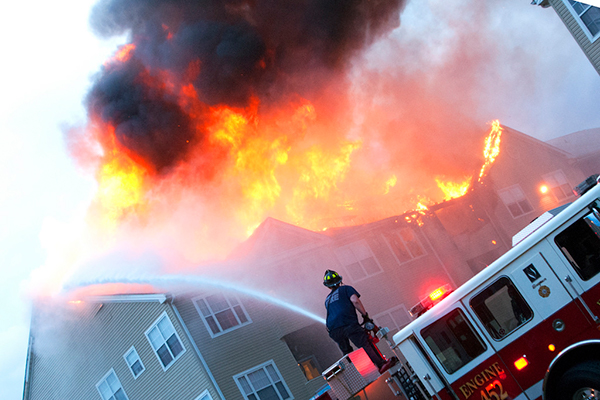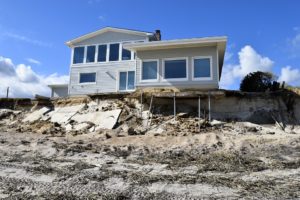Most people know that California is very susceptible to wildfires, but not all of the state’s residents are prepared for when it happens. Certainly, there are preventative steps you can take to protect your home. You must also be prepared to evacuate when a forest fire begins to encroach on your property.
Before you do anything, however, you want to make sure you’re protected by a reliable homeowners insurance policy, especially if you live in an area that is prone to fires. Government catastrophe grants will never be enough to rebuild a home destroyed by wildfires so make sure you have the right protection. The smartest thing to do is to buy coverage from an established carrier because a fire does affect your home and personal property. Some companies, like Safeco and Chubb, even offer a supplemental program that takes action to protect insureds during a wildfire crisis where they will send crews to set up fire safety areas around the home.
From keeping fires from raging on your property to instructions on what do if you’re caught in the middle of an emergency evacuation, we have some helpful tips on how to protect yourself, your family, and your property during a wildfire.
- Using fire resistant building materials in constructing your home is probably the best line of defense against wildfires. Most often, a fire starts from flying embers.
- Create a buffer from fire by removing all dead grass, leaves and weeds in the near vicinity (do not keep these stored in piles near the house!). Also, remove all leaves from the drains and gutters.
- Most importantly, cut down all dead trees near your home. If you can, remove trees that are very close to the house, as well as any timber you may have stored for winter.
- Keep some space between grass, shrubs, and trees. If you can, only plant fire-resistant plants near your home.
- If you know a wildfire nearby is spreading, close your windows so embers don’t fly inside the house.
- Be Ready to Evacuate
- You’ll want to have a wildfire emergency plan for yourself and your family. This should include an emergency meeting location outside of the fire area.
- Create several escape routes out of your home and the vicinity in case some are blocked.
- Have a plan in place for evacuating babies, toddlers, the elderly and disabled. Don’t forget your pets and/or livestock.
- Have fire extinguishers handy and make sure everyone in the family knows how to use them. Check expiration dates regularly.
- Make sure everyone knows how to shut down the gas, electricity and water in an emergency.
- Wear protective clothing with long sleeves and natural fibers. NEVER wear nylon, to avoid nylon burns, which are very serious.
- Have an Emergency Supply Kit
- Have at least 3 days-worth of non-perishable food and 3 gallons of water for each person. Also, bring extra water and pet food for pets.
- Have all medications prepared to go.
- Have your evacuation-plan map ready.
- Have extra change of clothes packed along with toilet paper and other sanitary supplies.
- Important documents like passports and birth certificates should be in this kit.
- Don’t forget the first-aid kit.
- Make sure to have a battery powered radio with extra batteries.
- Gather valuables that are irreplaceable (photo albums, laptop, etc).
- Be Properly Insured
- Call your insurance agent every year to go over coverage and limits. Report any home improvements or renovations in case you have to later rebuild. Make sure all the information on your house, for example square footage, is 100% accurate.
- Do you have a replacement cost policy or an actual cash value policy? These two are very different, with one taking into account the depreciated value while the other pays out market value. Make sure you’re getting the kind of protection that works for you.
- If you are living in a home that you rent, get renters insurance so that your property is protected. You don’t own the home but you want to be reimbursed for all the damage inside it.
On our next installment about wildfires, we will discuss what to do to make sure all your valuables are covered in the event of a fire and how to document all the items beforehand. We will also discuss what to do when you have been the victim of a fire: the procedures involved with your insurance agent, helpful organizations and what to do while you’re between homes.
The information in this article was obtained from various sources. This content is offered for educational purposes only and does not represent contractual agreements, nor is it intended to replace manuals or instructions provided by the manufacturer or the advice of a qualified professional. The definitions, terms and coverage in a given policy may be different than those suggested here and such policy will be governed by the language contained therein. No warranty or appropriateness for a specific purpose is expressed or implied.



